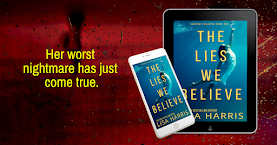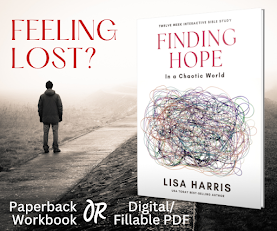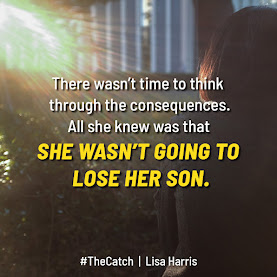 Writing has always been like therapy for me. I wrote my first book over two decades ago after suffering from a miscarriage. I felt shattered and lost and completely alone. I ended up writing the fictional novel of a couple and their struggle through infertility as well as a non-fiction study guide stemming from my own search for God in the midst of the pain.
Writing has always been like therapy for me. I wrote my first book over two decades ago after suffering from a miscarriage. I felt shattered and lost and completely alone. I ended up writing the fictional novel of a couple and their struggle through infertility as well as a non-fiction study guide stemming from my own search for God in the midst of the pain.
A lot of good came out of that writing therapy.
Like any family, we’ve had plenty of ups and downs over the years. We’re now coming up on the two year anniversary of one of our worst when our family was attacked by armed intruders in our home. Believe it or not, I was actually in the middle of writing a hostage scene for my heroine when the robbers broke in.
Here’s what I wrote about that experience in the Dear Reader letter in the back of the book just a few weeks after the attack. (The letter was later condensed.)
While I was in the process of finishing Desert Secrets, everything changed. Three armed men walked into our house, tied up myself, my husband and my daughter—gave me two black eyes and a mild concussion in the process—and robbed us, including the wedding ring off my finger.
The experience changed how I felt about a lot of things, including writing suspense. Before I could continue, I had to rethink why I write what I write. I was eventually able to move forward and pour my emotions from the attack into this story, which ended up bringing me healing. I knew that I wanted my readers to never forget that the God who created the universe loves us and wants to be our strength no matter what is happening in the world around us. Jesus came to heal the empty and broken hearted, and those searching for freedom and hope. Psalm 91 says that He is our refuge and fortress. That no matter what we are going through, He will cover us with his feathers and it is under His wings we will find refuge.
I truly believed what I wrote. But still, after the attack, I found myself seeking answers about God, and pain. Sin and the fallen world we live in. In the next book I wrote, Vanishing Point, I tackled the question that we’ve probably all asked at one time. Where were you, God? I worked through this question in my own life as I was writing conversations between my characters who were responding to their own string of tragedies they were dealing with.
Here’s part of a conversation between. Detective Garrett Addison and Special Agent Jordan Lambert.
“We ask that question—where were you, God?—as if we’re surprised when evil surfaces. We ask it because we want to know why he didn’t show up and stop what happened. We wonder what’s wrong with our world when we watch the news and hear all the tragedies happening around us. We forget that we live in a fallen world. We forget that God gives us the freedom to make choices. We wouldn’t like it if he forced us to follow him. But that means we have to suffer the consequences of our bad choices as well as enjoy the consequences of our good ones. God doesn’t give us free will, then stand over us and fix everything. Does that make sense?”
“It does,” Garret said. “Think of all the times in the Bible when people cry out to God for something. They beg him to rescue them from their enemies or give them something they want. Sometimes God intervenes and steps in dramatically, but it seems like more often than not, he doesn’t.”
“Exactly. And what I’m realizing is that when he doesn’t intervene, it doesn’t mean he isn’t there. I think it means just the opposite. He decided not to just sweep down and fix our problems every time something goes wrong. Instead he chose to redeem us eternally by sending his Son.”
“Immanuel,” Garrett said, feeling a chill go through him. “God with us.”
“Yes. I have to believe that he’s here with us. That he understands what we’re going through and feels our pain far more than we do ourselves.”
“It’s hard for us to understand why a loving God would allow such horror to exist among his creation,” Garrett said. “It doesn’t make sense to us. But God’s intent was never a fallen world. That was man’s choice.”
“But even though he never promised us we wouldn’t feel pain, he did promise that we would never be alone.”
Tragedies like the Oklahoma City bombing, 9/11, Hurricane Katrina, and Sandy Hook (and the Corona virus) flipped through Garrett’s mind. The reality of a fallen world was clear. And yet like Jordan said, wasn’t God’s plan really a plan of redemption? Yes, he believed that God was capable of fixing our problems, but he chose instead to rescue and redeem humankind permanently.
“When we suffer a loss,” he said, trying to put his thoughts into words, “some people say that everything happens for a reason. But I don’t think there’s always necessarily a particular ‘reason’ for something to happen. Maybe the truth is that things happen because we live in a world where pain, death, and loss are all naturally a part of life. No one is immune.”
Jordan nodded. “But instead of believing that hardships are the norm, we say that we deserve being showered with God’s blessings. And yet Jesus told us that in this world we’d have many troubles. Sometimes we do experience God’s blessings, but he never promised us that everything would be perfect in this world.”
“Only in the redeemed world to come,” Garrett agreed.
“What he does promise is to walk with us through the bad times. As crazy as it seems, somehow, when bad things happen, we start to see God’s grace. We start to dig deeper. Sometimes it takes trauma to get someone searching for God.” ~From Vanishing Point
Once again, my writing was therapeutic for me and something I hoped as I wrote it would minister to those who read the book. But there has still been something that has always bothered me. My family and I walked away from the attack on our family. We saw miracles that night, so many we made a list. We saw how things could have turned out so much worse. To this day anxiety that sometimes still lingers, but my family was okay. We were alive. And I was grateful.
 There was a moment that night, though, when I didn’t know how things were going to end. When I ran around locking up the house after the robbers fled and didn’t know where my husband was. I remember as clearly as it was yesterday, sitting down in the hallway with my daughter, believing I was facing my new reality. Life without my husband. I was now a widow. They'd made threats and now they’d killed him. And at that moment, I truly believed he was gone.
There was a moment that night, though, when I didn’t know how things were going to end. When I ran around locking up the house after the robbers fled and didn’t know where my husband was. I remember as clearly as it was yesterday, sitting down in the hallway with my daughter, believing I was facing my new reality. Life without my husband. I was now a widow. They'd made threats and now they’d killed him. And at that moment, I truly believed he was gone.
Not long after that, he arrived back with the police. Little did I know that his leaving to get help was what saved us and scared them off. But what if God hadn’t saved him that day? Would I still be able to praise him? Would I still trust?
A scene from Daniel keeps repeating in my mind.
“O Nebuchadnezzar, we do not need to defend ourselves before you. If we are thrown into the blazing furnace, the God whom we serve is able to save us. He will rescue us from your power, Your Majesty. But even if he doesn’t, we want to make it clear to you, Your Majesty, that we will never serve your gods or worship the gold statue you have set up.” Daniel 3:16-18 NLT
Even if He doesn’t we will still serve You.
I suppose I’m a glutton for punishment, but I’m writing a book right now (Deadly Intentions). It’s centered around a man who loses his wife during a home invasion. I know. What was I thinking? But the spiritual thread of the story is one that dives into that very question. And it’s one I wanted—needed—to explore. What if God doesn’t say yes? What if He doesn’t heal my loved one? What if He doesn’t move mountains or save me from the fiery furnace?
Jesus said very clearly that we would have trouble in this world. Later Peter said: “Dear friends, don’t be surprised at the fiery trials you are going through, as if something strange were happening to you. Instead, be very glad—for these trials make you partners with Christ in his suffering, so that you will have the wonderful joy of seeing his glory when it is revealed to all the world.” I Peter 4:12-13
What if my husband had been killed that night of the attack? What would my response to that have been? Would I have blamed God? Left the mission field? Turned bitter? Honestly, I don’t know. I hope I wouldn’t have. I hope that I would have seen God even in the midst of my pain.
Here is what I do know.
He has promised to be our strength when we are weak, to give us hope when we are hopeless, and to love us when we feel unlovable. It’s never relying on our own strength to get us through difficult times, but leaning on the mighty arm of God and being continuously filled with His Spirit. Isaiah 41:10 says not to fear, because “I am with you; do not be dismayed, for I am your God. I will strengthen you and help you; I will uphold you with my righteous right hand.”
So what is my response today? Like the song below, whether I'm facing tragedy like a world-wide pandemic, or just a bad day, may my life be filled with His strength and mercy.









































































No comments:
Post a Comment